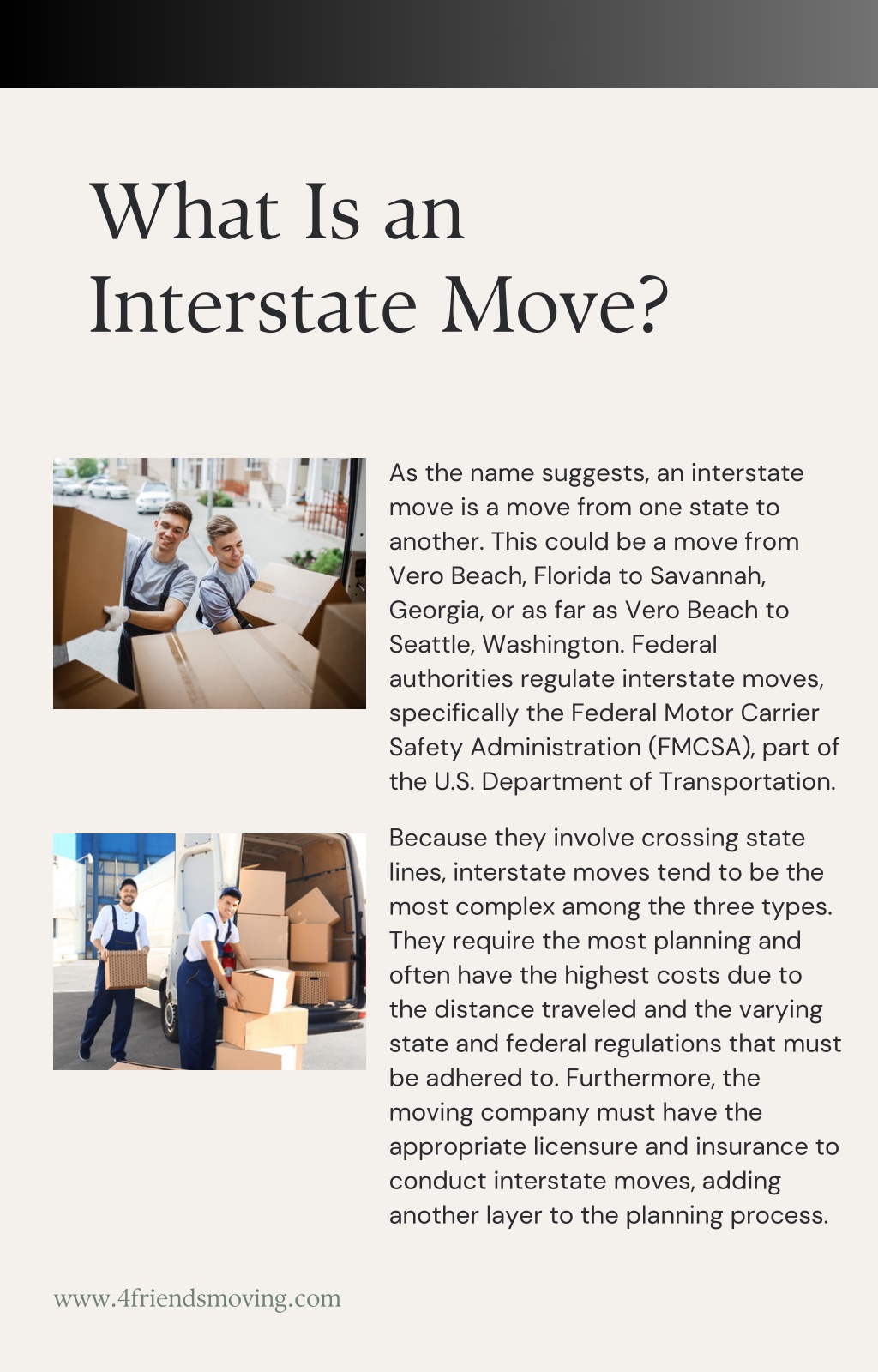If you’re getting ready for an interstate move, you probably have a lot of decisions ahead.
This article offers a fresh look at how to handle long-distance moving effectively.
Let’s dive into the world of interstate relocation and uncover what it really takes to move to another state.
Understanding the Scope of Interstate Moving
This means only certified and insured companies can legally handle your goods interstate.
For example, some states have agricultural checks, item bans, or specific rules on transporting vehicles.
Most importantly, the logistics are more complex: longer travel times come into play.
Finding the Perfect Cross-State Moving Partner
Selecting the right interstate moving company is crucial for a successful relocation. Start by checking for proper licenses and insurance—legitimate companies must have a USDOT number issued by the Department of Transportation.
Ask about additional fees such as fuel surcharges, long carry charges, or storage if needed.
Taking time to vet your moving company can save you stress, money, and avoidable delays.
Understanding Interstate Moving Price Calculations
Another key factor is the weight or volume of your shipment; heavy or bulky loads increase both transport and handling fees.
Additional services can also raise the bill.
Planning ahead and informing your moving company about these conditions helps avoid surprise charges on moving day.

How to Plan and Organize Your Interstate Move
Early preparation gives you enough time to handle unexpected challenges calmly.
Inventory management is key.
This ensures you’re comfortable and organized even if your shipment is delayed or you need time to unpack.
Comparing Different Interstate Moving Services
Full-service movers handle everything, from packing to unpacking, ideal for busy professionals or large families.
Freight shipping companies also offer options for large shipments that don’t need full moving crews.
Understanding your specific needs ensures you select the best option for a smooth and cost-effective saiba mais aqui interstate relocation.

Top Pitfalls in Long-Distance Moves
Booking early not only secures better pricing but also gives you time to research and prepare properly.
Always verify USDOT numbers, insurance policies, and read contracts carefully before committing.
Using cheap boxes, skipping labels, or failing to protect fragile items increases the risk of breakage.
Budget-Friendly Strategies for Interstate Relocation
Every extra pound adds to the total bill, so sell, donate, or recycle items you no longer need.
Some movers offer price matching, discounts for flexible dates, or savings for booking during off-peak seasons.
Combining professional help with DIY strategies creates a cost-effective balance that fits your budget and schedule.
Final Thoughts on Moving Between States
From selecting a mover to managing costs, each choice shapes the outcome of your move.
By following expert tips and avoiding common mistakes, you can reduce stress and ensure your belongings arrive safely.
Best of luck on your journey to a new home!
FAQ About Interstate Moving
How can I save money on an interstate move?
Comparing multiple quotes and moving during off-peak seasons also helps lower costs.
When should I hire movers for a long-distance move?
Last-minute bookings often come with limited availability and higher prices.
What items are movers not allowed to transport across state lines?
Always check with your moving company for a detailed list of prohibited items.
Do I need extra coverage for my interstate move?
Most interstate movers include basic valuation coverage by law, but it’s minimal.
How do I know where my shipment is?
Ask your company about their communication methods and tracking options.